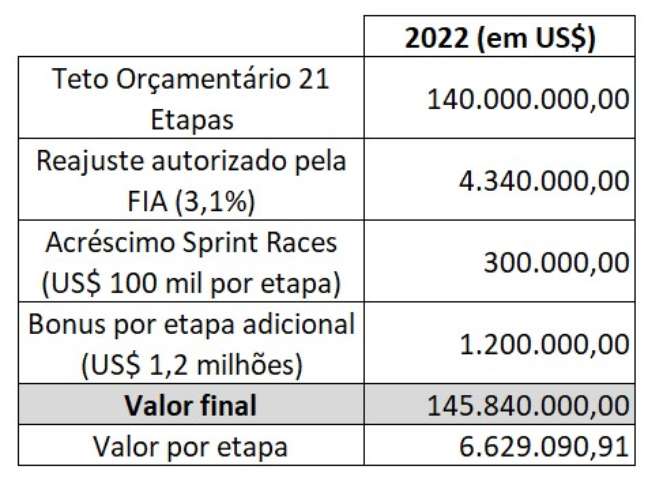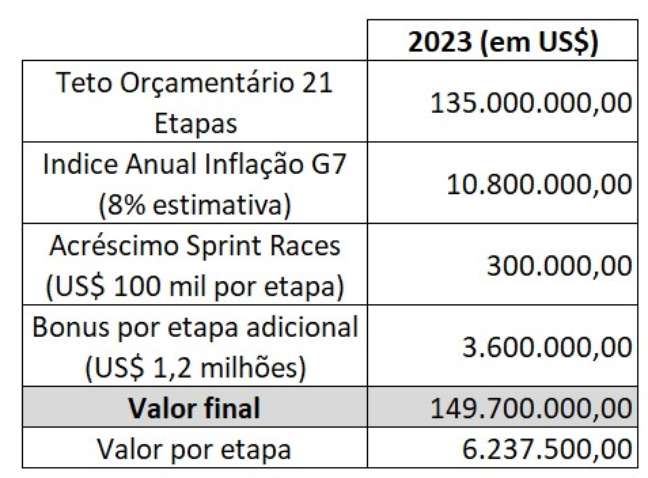With the release of the calendar for 2023, a question arises among fans: What is the budget limit? Last year and now, we have 22 races and 3 sprints. Next year we will have a record: 24 races and 3 sprints.
Within the agreements signed in 2020, for the next year, the spending limit for F1 teams has been set at US$135 million. Always remember that salary expenses for pilots, engines (created at $15 million annually), marketing expenses and 3 key people on the team are not included here. For this year, that means a token reduction of $5 million.
Much has been said so far about who can violate the agreed-upon values. In fact, we won’t know until next year when the teams will hand over their financial statements to the FIA for evaluation. But as we said here, the difference felt some relief when the ceiling was adjusted in 2022 by 3.1%, in accordance with the terms of the Financial Regulations, which permit the application of an inflationary adjustment factor if the annual indicator is for 7 countries. Leading economies exceed 3%.
Add to that an additional $1.2 million for each additional stage over the 21 pre-built and $100,000 for each Sprint Race played. A factor that also favored the two teams was the depreciation of the pound sterling and the euro against the US dollar, the currency that Liberty Media paid for commercial contracts, estimated at around 10%. This way, the value will actually be like this:
For 2023, the difference will not have the currency factor to consider. Although there is a decrease compared to this year, there will be the right to readjust according to the inflation index, as expected. Due to increases in energy prices, economies considered “developed” have delivered large numbers. For calculation purposes, a value of 8% per annum was arbitrated (although the UK, the 80% rule of difference, estimates double-digit rates). In this way, we will have the following table:
Nominally we will have a higher value than the stipulated value for 2021. For teams, that could mean a little less than $4 million more than in 2022. It ends up as compensation given for two more phases. But, if you compare in terms of value by stage, there is a decrease of about 5.9% compared to 2022. A greater number of the initial reduction expected (about 3.5%).
For now, the problem has been resolved. But the cost pressure is high and we should hear a lot more about it again. Personnel management is putting pressure, as a lot of people can’t handle the big rotation and have asked to leave F1. It’s no coincidence that there’s been talk of iterating a system similar to NASCAR: different teams for certain events. The issue should appear on the agenda when the amendments to the new 2026 Technical Regulations are discussed.
+The best content in your email for free. Choose your favorite Terra newsletter. click here!



